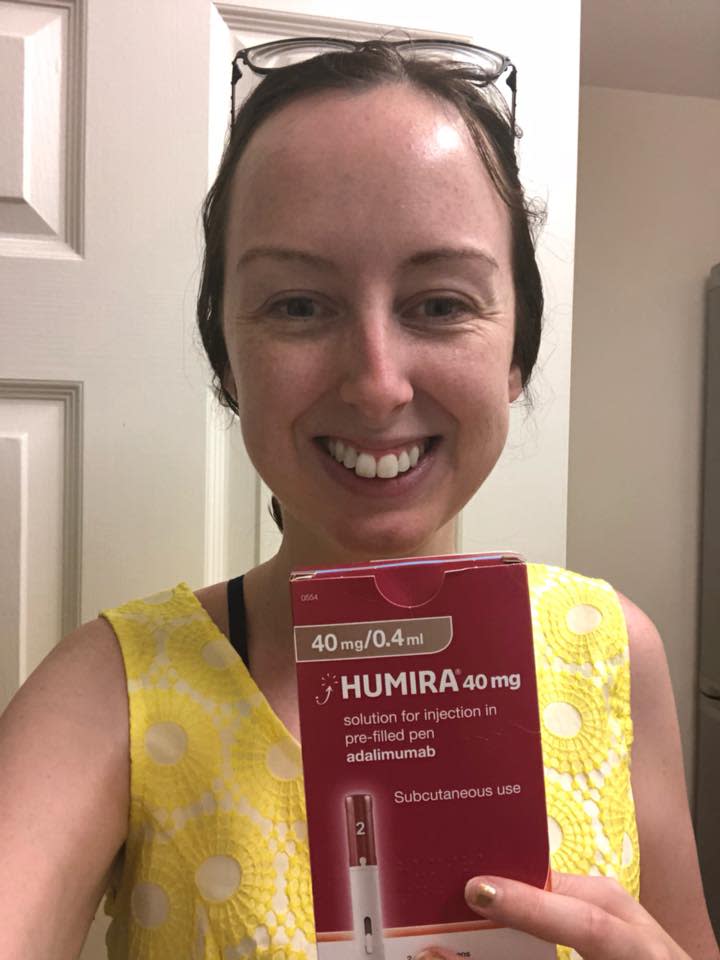'I was in agony - but it took 12 years to get a diagnosis'

Jenna Downes was only sixteen and had just completed her GCSEs when she started to experience stomach pains and diarrhoea that wouldn’t subside.
"We’d recently returned from a holiday so I thought it might have something to do with that but it carried on and on and I was becoming increasingly tired," says Downes, now 35.
"I’d need regular naps after school and simply thought that was ‘normal’."
"I was very skinny – a size 6 – and at 5ft 8ins I struggled to put on weight, so people would ask if I had anorexia.
"When my periods stopped suddenly at 18, I went to the GP who did lots of blood and gynaecological tests and they found I was low in iron, but that didn’t explain the stomach problems.
"I kick myself now that I didn’t ask for the right tests but I wasn’t to know and no one put two and two together."
In fact, Downes, a blogger who lives in Warwickshire with husband, Matt, 36, a retail worker and son Jude, two, suffered with symptoms for twelve years before she was correctly diagnosed with Crohn’s, a condition that causes inflammation of the digestive system leading to redness, swelling and pain.
Read more: Everything there is to know about Crohn's

The magician Dynamo, as well as singer Anastacia and TV personality Sam Faeirs all have the condition.
According to the charity Crohn’s and Colitis UK, Crohn’s affects about one in every 650 people in the UK and is more common in Northern Europe and North American, although numbers are beginning to increase in developing nations. May 19 is World IBD day, dedicated to raising awareness of this debilitating, hidden condition.
Interestingly, it took a doctor in China to discover Downes' problem.
Read more: Crohn’s could one day be treated with 'freeze-dried faeces capsules'
"One of the main problems in particular with women being diagnosed properly, is that so often, the symptoms are put down to something else like stress or period problems," says Downes.
"I was put on the Pill at 20 to see if it solved the problem but it didn’t. I simply thought it was normal to be tired, dizzy and nauseous most of the time.
"On bad days, I’d have to rush to the toilet seven or eight times a day although other people with Crohn’s tell me that during a bad attack, they can be going up to 30 times a day. It’s very stressful and I would get quite depressed about it."
"It was while I was in a teaching job in China that things finally came to a head. I’d applied to teach there after two lots of surgery to remove abscesses from my bottom. Again, it can be another sign of Crohn’s but no one had thought to do the proper tests.
"But when I vomited at a parents’ evening, I knew I needed to see another doctor. He was flabbergasted that I’d never had a colonoscopy, where they put a camera into your bowel to explore what’s going on."
Watch: Dynamo reveals impact of Crohn’s disease
Downes was referred for investigations the following week and had both a colonoscopy and an endoscopy – in which a camera is placed down the throat to check if there is a problem in the stomach.
Finally, she had some answers.
"The doctor diagnosed Crohn’s straight away and was astonished that I’d been living with such a severe condition for so many years," she says.
"It was a horrible shock but even at that point I had no idea how serious Crohn’s could be. I remember saying to my husband: 'It’s ok, they'll give me medicine to fix it now.'"
Although no one knows what causes Crohn’s, research suggests it is caused by a combination of factors including viruses, bacteria, diet, smoking and stress.
Read more:What it’s really like to live with Crohn’s disease
Downes now has to inject herself fortnightly and take daily medication with drugs which modify her immune system and stop her from having as many flare-ups.

"I felt like I had to learn everything all over again," she says.
"I now have to avoid really fatty or high fibre foods like salads, because they make the condition worse and I also don’t eat gluten or dairy, though some people with Crohn’s can manage them."
Downes left her teaching job to become a full-time blogger and now helps raise awareness of the condition via her blog abalancedbelly.co.uk and via her Instagram.
She says if she had been armed with the information she has now, she wouldn’t have suffered for twelve years without a diagnosis.
"One of the biggest misconceptions is that you can have a blood test for Crohn’s - it means doctors are often testing for other things and Crohn’s can be missed," she says.
"One thing I always advise people to ask their GP for, if they think it might be Crohn’s is fecal calprotectin test – a stool sample test that can detect if the bowel is inflamed."
"It’s not 100% accurate but it’s really cheap and less invasive and a much better indicator of Crohn’s than blood tests. A colonoscopy is also important.
"Don’t be afraid to ask your doctor for these. It may mean you’re diagnosed much earlier, which can literally save you years of pain."
Watch: Spending time in sunshine may decrease risk of inflammatory bowel disease



